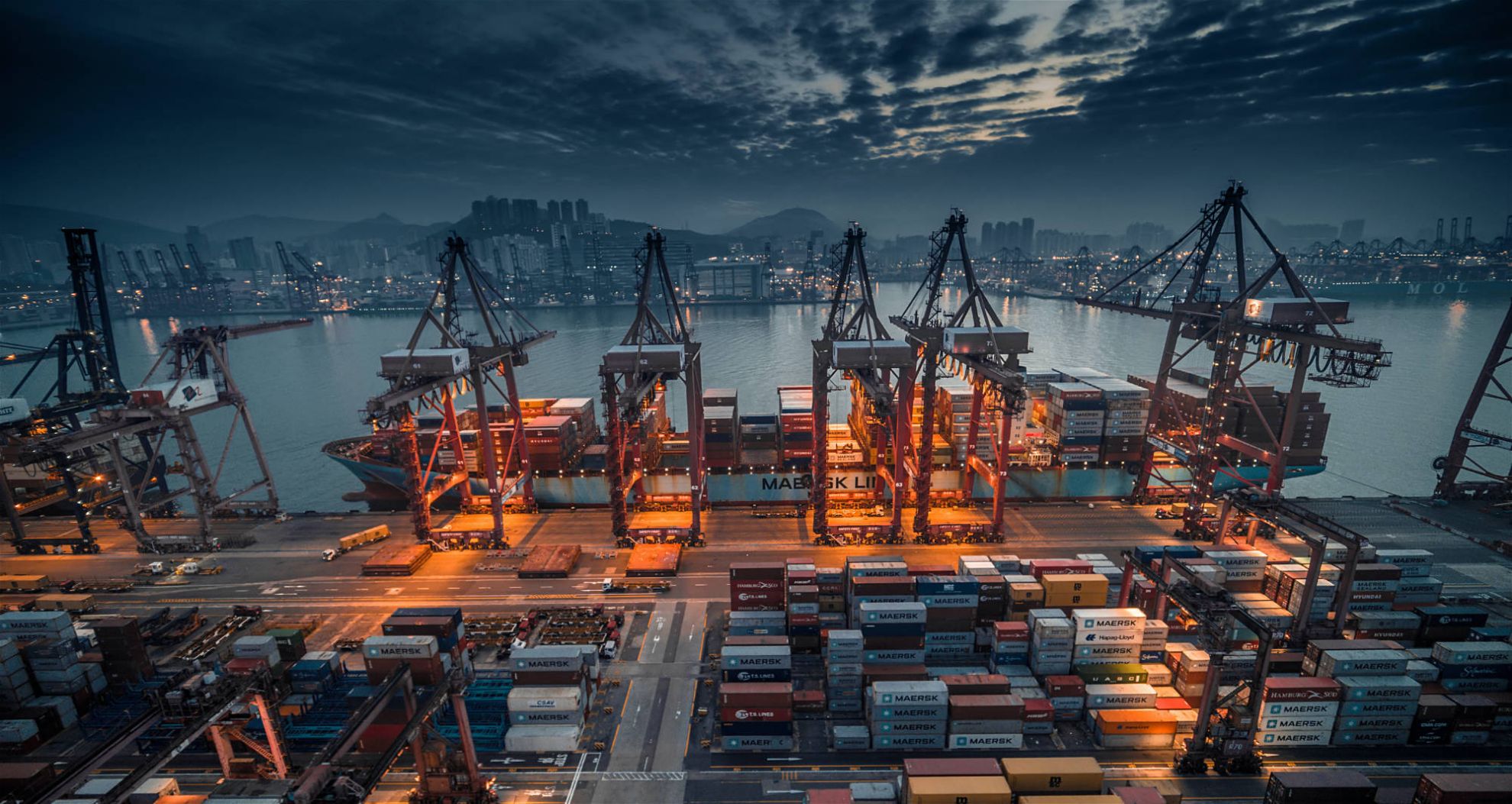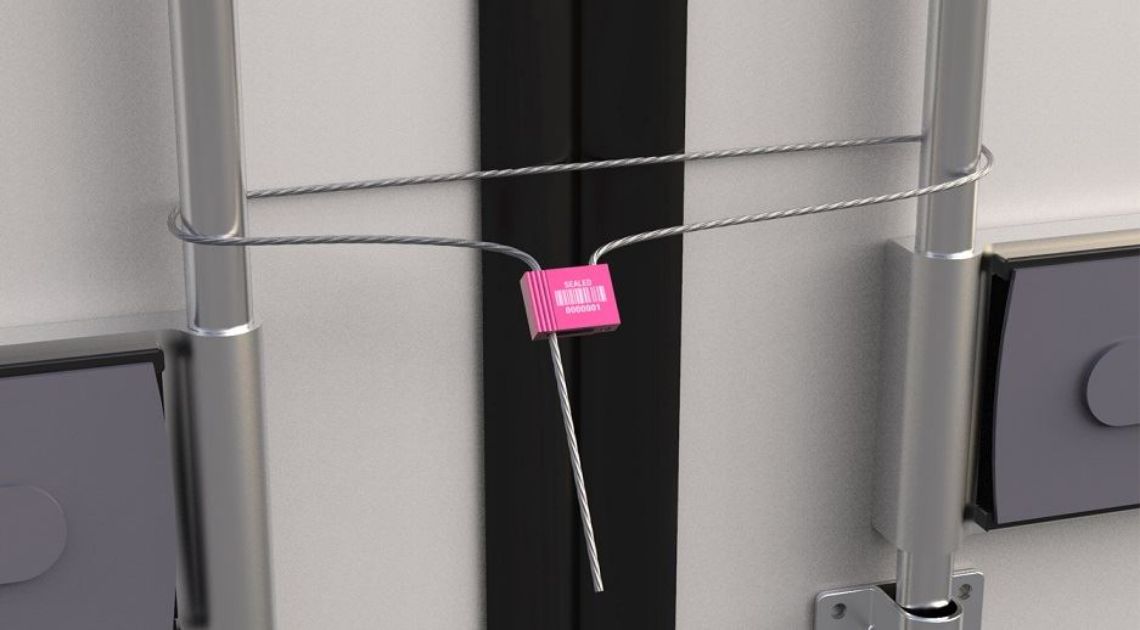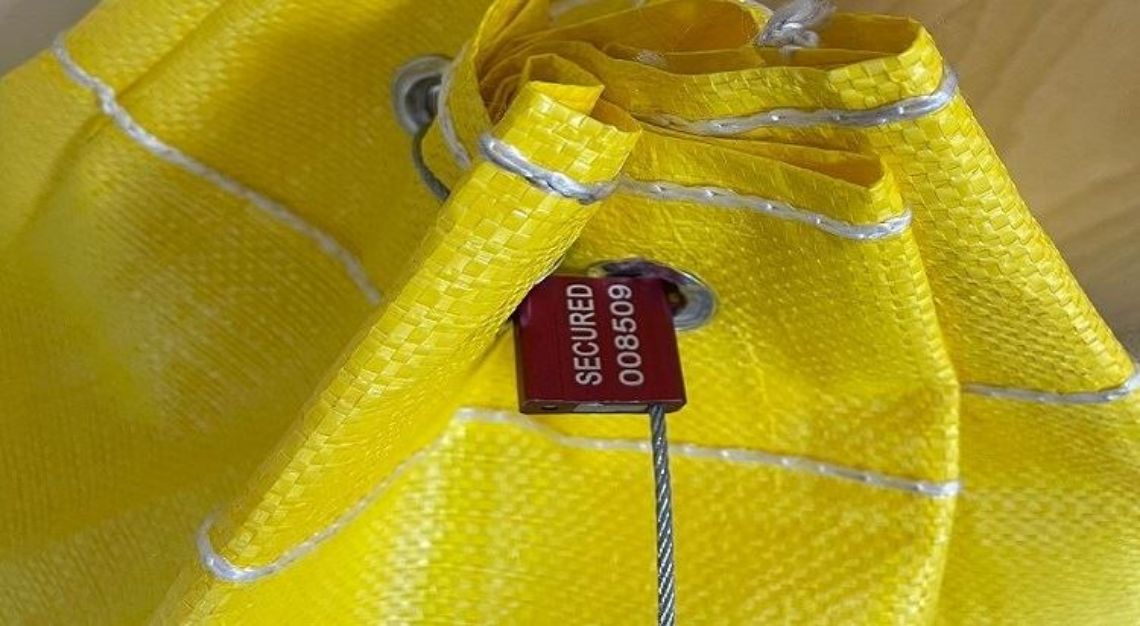Email us
Call us
01829 760000
How Do Cable Seals Work: A Guide to Cable Security Seals
In this article we explore the ‘flexibility of the flexiGrip’ – giving you an in-depth look into our range of metal cable seals used across the world, the benefits of using cable seals for your security, and the wide range of customisation options available to you.
Monday, May 26, 2025Top 10 Applications for Metal Cable Seals
We have put together the Top 10 Use Cases for Cable Security Seals, and explain in each case why cable seals are particularly suited for these types of applications.
Cable security seals are flexible and strong types of security seals popular across all types of industries, including freight and transport, food & pharmaceutical, industrial and manufacturing and other sectors. We have put together the below Top 10 Use Cases for Cable Security Seals, and explain in each case why cable seals are particularly suited for these types of applications.
Top 10 Use Cases for Metal Security Seals
| Use Cases of Cable Security Seals | Illustration |
|---|---|
Road Haulage / Trailer Security Cable seals are often used to lock through the locking hasps of road trailer doors, as a stronger solution and more tamper-evident solution than easier breaking pull-through or fixed length trailer seals which can be used alternatively. Our flexiGrip 150M seal is a HMRC Customs accepted seal, and road freight transiting the UK-EU customs borders can utilise customs-accepted cable seals as a cost-effective security seal solution for cross-border road shipments. | 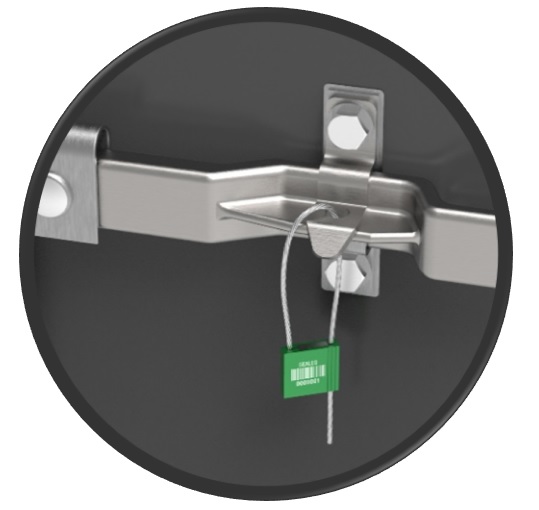 |
Shipping Containers ISO17712 High Security Cable seals are strong barrier seals suitable for sealing of shipping containers transiting customs borders. Cable Seals are sometimes preferred to more conventional bolt seals for shipping containers to provide increased security, particularly for high value shipments involved in food/drink and pharmaceutical logistics: i. Extra-long cable seals can seal around the vertical locking bars, which can provide superior security compared to sealing at locking hasps ii. Our specialised double-locking Flexigrip 500MD is a heavy-duty cable seal which provides a double locking mechanism, for increased security shipments. | 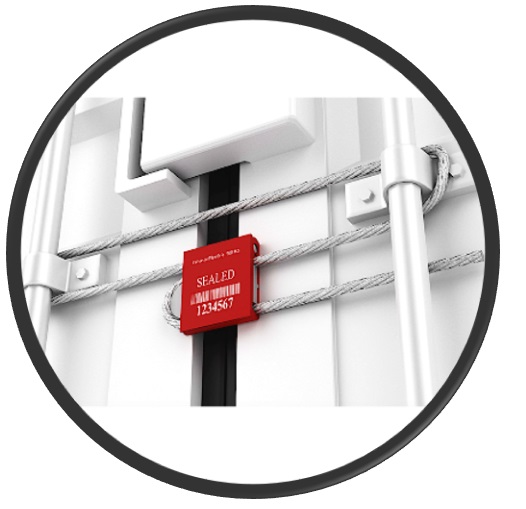 |
Air Cargo Containers Air cargo containers are often subject to vibration, knocks and shocks during air transport and ground movements, and as such lower-strength plastic pull-through seals are not often strong enough to provide effective tamper-evident security. Cable seals provide higher strength security to ensure that seals do not open whilst in transit, providing a full chain of custody of sealed air cargo enclosures from point-to-point. | 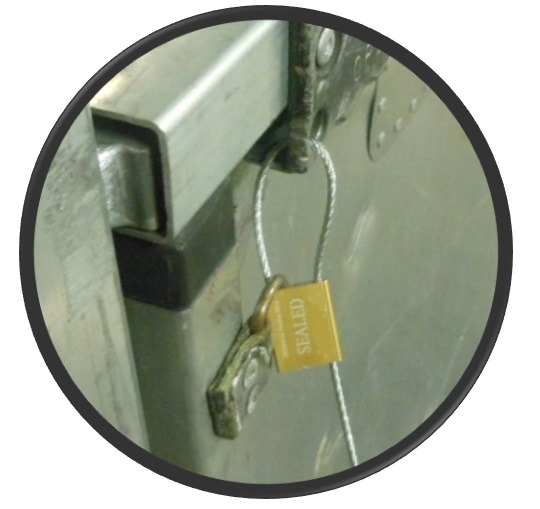 |
Rail Cars Cable seals are ideal for sealing individual rail freight car doors. Our range of cable security seals have rugged design features to ensure chain of custody during rail freight movements. | 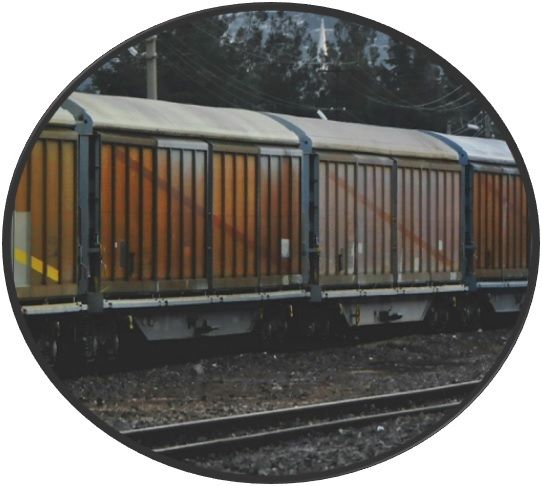 |
Intermediate Bulk Containers (IBCs) Light-weight cable seals with smaller apertures, for example 1.5mm cable diameters (100S and 150M Models), are suitable for sealing through apertures in Intermediate Bulk Container outlet points. Cable seals seal IBC’s against unauthorised or illegitimate access and maintains the chain of custody of full and empty IBC’s whilst transiting through the supply chain. | 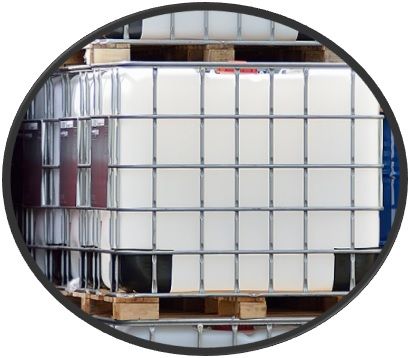 |
Postal and Mail Sacks and Bags Cable seals are well-suited as high-strength pull-through security seals, where the application in question demands increased strength or tamper-evident security. For example, mail sacks might contain particularly sensitive items or cargo requiring the additional strength and tamper-evident protection of cable seals. Cable seals can withstand over 2000KgF of pulling strength force (depending on model) and will not break in transit accidentally. | 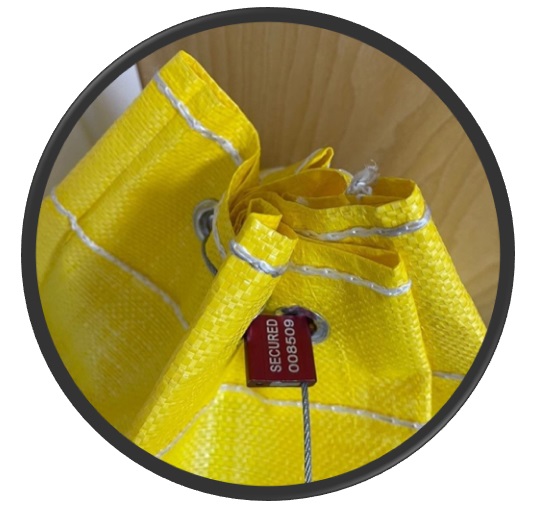 |
Bulk Tanker Hatches, Manholes and Valves Chemical and fuel bulk tankers often have multiple points of access, and cable seals are an excellent way to seal these points of access so that legitimate users can maintain an audit and chain of custody of when, how and where tanker contents have been accessed. | 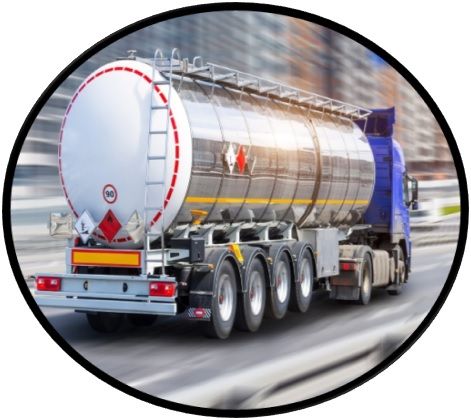 |
Open Top Barrels and Chemical Drums Cable seals can provide a strong tamper-evident lock to sealing the metal clasp mechanisms of open top barrels, ensuring drums remain sealed until delivered to customers, or received back to depots etc. | 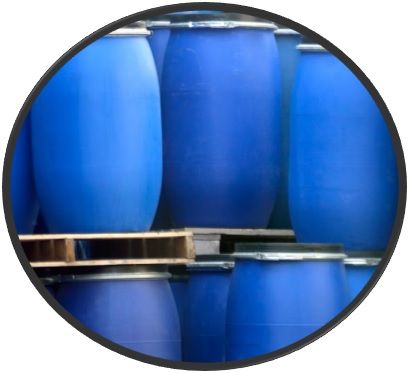 |
Valve Lockout Cable seals, sometimes known as “car seals” when used in the context of valve lockout applications, can provide a safe and effective way to isolate valves of all kinds, including quarter-turn, 3,4,5-way valves, gate valves, and butterfly valves. Car seals / cable seals can prevent the actuation of equipment, assisting in isolation and inspection programs. | 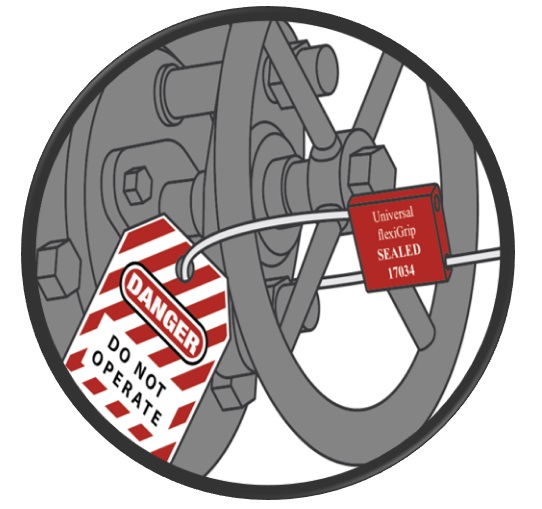 |
Pallets & Crates Our StrapSecure cable seal and pallet strapping solution is a convenient and cost-effective way to seal the intersection of strapping which can be used to seal pallets and crates being transported through the supply chain. StrapSecure is particularly suited for sealing of APHA agricultural and pharmaceutical consignments, as they provide security on the individual pallet-level. | 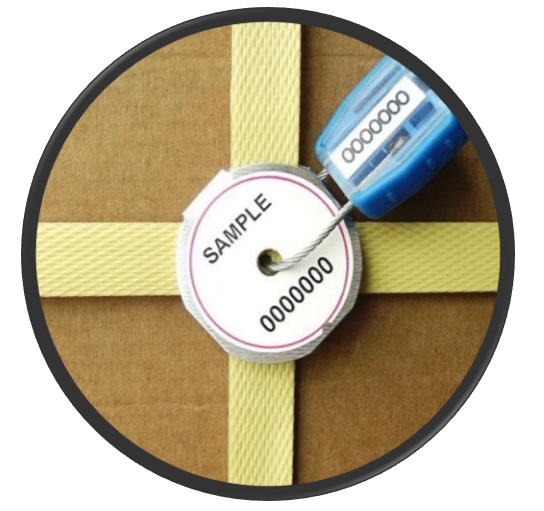 |
See our full range of cable seals for more information.
Please contact us at [email protected] or +44 (0) 1829 760000 to discuss your cable seals requirements today.
Display
per page

